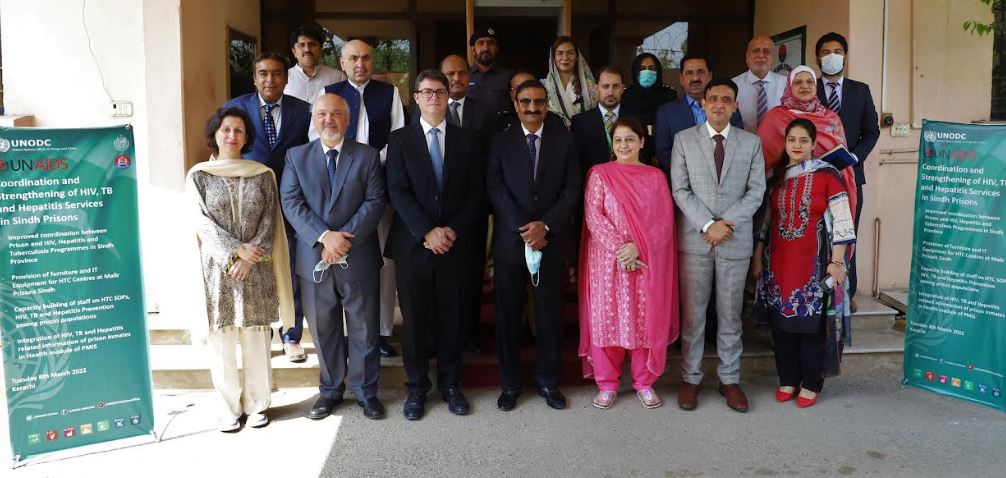KARACHI, MAR 8 /DNA/ – Today, UNODC Country Office Pakistan, in coordination with the Sindh Prisons Department, held a ceremony on the Coordination and Strengthening of HIV, TB, and Hepatitis Services in Prisons in the IG Prison Sindh office. During the ceremony, the formal control and implementation of the HIV, TB, and Hepatitis Module of Prison Management Information System (PMIS) along with the equipment for HTC centre was handed over to Sindh Prisons Department. The equipment will be used in the newly established HIV Testing and Counseling (HTC) Center for HIV, Hepatitis B and C, and TB testing and treatment services at the District Prison Malir in Karachi.
The HIV, Hepatitis, and TB Module has been designed to help prison authorities and the Health Department Sindh in maintaining data on the health of the prisoners with regards to HIV, Hepatitis, and TB during their time in prison. This will help keep track of, and support people, after their release from prison.
This pilot project also aimed at strengthening coordination between the Prisons and Health Department of Sindh facilitating a quality continuum of HIV, Hepatitis, and TB prevention, treatment, and care services to the prisoners. As part of the project, tools were developed for the initial screening of prisoners for high-risk behaviors and capacity-building of the prison staff. Moreover, NADRA is now providing mobile services for registration and issuing free-of-cost CNIC to prisoners suffering from HIV, Hepatitis B, and C.
Kazi Nazir Ahmed, Inspector General of Prisons praised UNODC Pakistan, Health Department Sindh, and all the stakeholders for their continuous support of the project and its implementation. He noted UNODC’s exponential efforts in providing PMIS in 22 prisons throughout Sind.
Dr. Jeremy Milsom, Representative UNODC, thanked the Prisons, Health Department, Sindh, and stakeholders for their support and ownership of this important initiative. He appreciated UNAIDS for its generous support and underscored the importance of having strong collaboration between departments that can help in improving the quality of life of prison inmates.
Director General Health Services Sindh was also in attendance and appreciated the support of UNODC and UNAIDS in capacity-building of the staff and provision of equipment. He assured that the health department will continue to provide health care services to the prison department and support the post-release referral mechanism.
These prison interventions were made possible with the financial support from UNAIDS under the Country Envelops and HIV Section of the UNODC Headquarters.

















